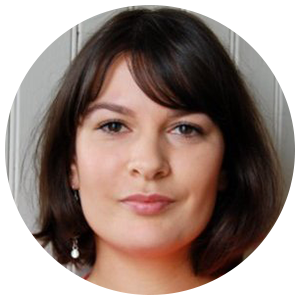 © Léa Vollet pour Action contre la Faim
© Léa Vollet pour Action contre la Faim
Embedded
A song to welcome refugees
Action Against Hunger’s song rises from the crowd, leaded by the community worker who jumps in front of the eighty people. “We designed this song because music makes things easy to remember for most of the people. Everybody knows that feeling of a heady music that will not leave your head. Plus, it is in their mother tongue and singing together brings a bit of joy. The lyrics are about how Action Against Hunger can help you if your child is sick from malnutrition and it gives advices on good care practices like exclusive breastfeeding,’ adds Nyaluak.
Nguenyyiel camp is one of the seven refugee camps established in Gambella region, near the border with South Sudan. Since December 2013, the civil war that rages in South Sudan has displaced thousands of people, with more than 2 millions of refugees and asylum-seekers in the neighboring countries of Uganda, Sudan, Ethiopia and Kenya mostly. Gambella region currently hosts more than 405,000 people, mainly women and children, which equals the local Ethiopian population.
Children under five are screened for malnutrition. Those suffering from malnutrition, but not affected by other diseases such as malaria or diarrhea, are taken in charge through the out-patient therapeutic program. They can be treated at home: after the medical team has completed the tests and given nutritional and care advices to the caregiver, they return home with a quantity of ready-to-use therapeutic food for one week. The thick paste contains all nutritional inputs that they need to recover. “They have to come back in a week’s time for the health workers to check on the child’s health, explains Lemma, the Nutrition program manager for Action Against Hunger, we will see if the treatment works and whether the child is gaining weight. Otherwise, we will try to understand why the child does not react to the treatment. Sometimes, this leads us to visit the family. Often, the mothers understand how it works but the family is willing to share the treatment with other children in the household. In these cases, we explain to the family why it is important for the sick child to receive all the treatment. We indicate how they can find other sources of food and we can find other malnourished children that we send to our center.”
The outpatient therapeutic program is designed for malnourished children who can be treated at home. Children with medical complications such as diarrhea and malaria go to the stabilization centre, which operates 24 hours a day, seven days a week.

Communication Officer
In Gambella region, Action Against Hunger works both in refugee’s camp and within the local Ethiopian communities to prevent and fight malnutrition. Our activities are supported by the European Civil Protection and Humanitarian Aid Operations of the European Commission (ECHO), the Bureau of Populations, Refugees and Migrations (BPRM), Global Affairs Canada (GAC) and the Swedish International Development Cooperation Agency (SIDA)
Ethiopia
Related news
All the news of our Action: articles, events, testimonials, press releases…













